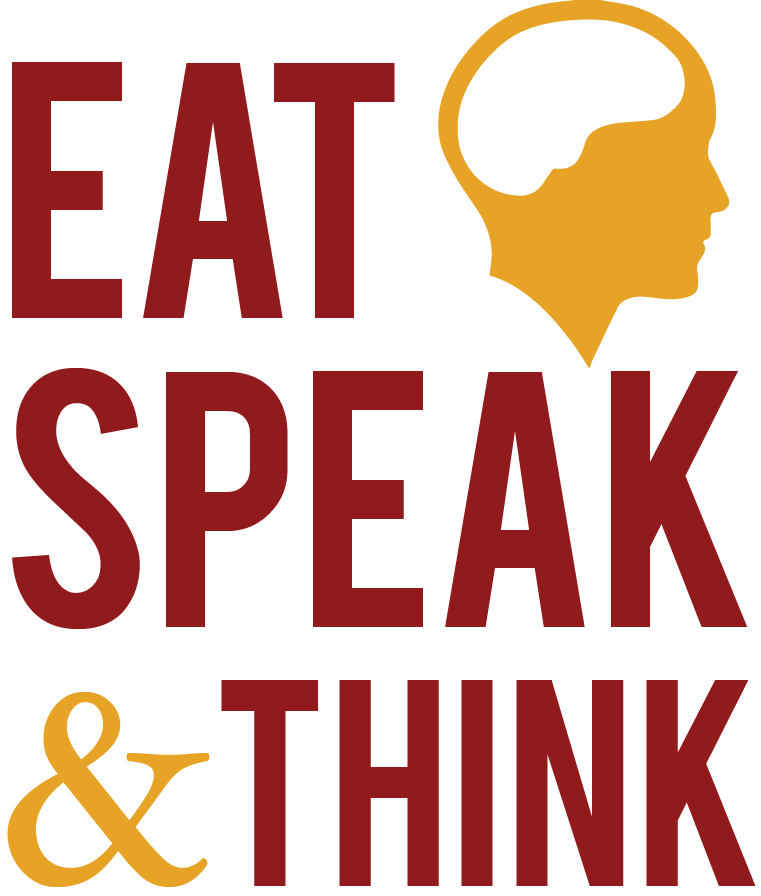Use this easy calendar exercise to address reading, writing, auditory comprehension, verbal expression, and cognitive-communication skills. Here you’ll find 40 questions that you can use directly or as a starting point for your own questions. If possible, use your patient’s own calendar and adapt the questions as needed. The free 7-page download contains all the questions, a blank November 2021 page, and the imaginary patient’s schedule I used for creating these questions.
Free DIRECT download: Easy calendar exercise (patient handout). (Email subscribers get free access to all the resources in the Free Subscription Library.)
Outline:
- Materials.
- Writing.
- Auditory comprehension.
- Verbal expression.
- Cognitive-communication.
- Please share other questions you would ask.
- Related Eat, Speak, & Think posts.
Materials
If possible, use your patient’s own calendar. If they don’t have one or it’s not appropriate to use it at this stage in therapy, you can use the example calendar pages I’m sharing as a free download, or you can print one from a site such as from Calendar-12.com. Modify the questions below as needed.
Writing
These questions target writing skills, while asking for different response types from your patient (pointing, speaking, or writing). You can ask your patient to read the questions, or you can read them aloud.
- Which month are we looking at?
- What is the date of the second Monday?
- What appointment do you have on the 17th?
- What holiday falls in this month?
- How many therapy sessions are planned for this month?
- What do you have planned for the first Friday?
Add these appointments to the calendar. If you’re using a real calendar, use pencil and erase when the exercise is complete.
- Dr. Stevens, Tuesday the 30th at 10:30 am.
- You play Bridge every other week, same time and place. Add the missing event for this month.
- Foot doctor, Friday the 12th at 3:30 pm.
- Lunch with grandchildren, Sunday the 14th, noon.
Auditory comprehension
To target auditory comprehension, read these questions aloud to your patient and ask them to point to each answer.
- Point to where it says “November.”
- Where is the first Tuesday in the month?
- Point to the last Saturday in the month.
- Let’s say that today is Thursday, November 11. Where does it say that?
- Point to your last therapy appointment.
- Show me where Thanksgiving falls.
- Point to your next doctor’s appointment.
- Where does it say the year?
- Let’s say today is Friday, November 19. Point to the day after tomorrow.
- If today is November 16, point to three days ago.
Verbal expression
Your patient can practice saying calendar-related vocabulary, from automatic sequences to reasoning/problem-solving. These questions may help you think of other, related questions.
- When were you born?
- Say the days of the week (from memory or reading aloud).
- What is today?
- What was yesterday’s date?
- What will tomorrow be?
- Say the months of the year.
- What month are we in?
- What was last month?
- What is next month?
- Do you have any appointments this week? What are they?
- If you could go anywhere and do anything you wanted next Saturday, what would you do?
- When was your last doctor appointment?
- What would you say if your dentist asked to schedule an appointment at the same time as one you already have with your doctor?
- Pretend I’m your doctor’s receptionist. What would you say if you wanted to reschedule your next appointment?
Cognitive-communication
These questions aim to be more functional, most of them resulting in a tangible outcome that should be useful to your patient.
- Under what circumstance might you accept the dentist appointment in #13 and reschedule the doctor’s visit?
- Call and confirm your next doctor’s appointment.
- Make a new appointment and record it on your calendar.
- Write down a list of questions to ask at your next doctor’s appointment.
- Go through appointment cards or after-visit summaries and make sure each future appointment is on the calendar correctly.
- While going through your paperwork, update or create a list of your doctors and their contact information.
Please share other questions you would ask
I’d love to know what other questions you would ask or tasks you would assign, especially those falling under cognitive-communication. Please comment below or contact me.
Related Eat, Speak, & Think posts
- 10 practical cognitive therapy activities.
- Improve aphasia outcomes by creating intensive home exercise programs.
- 5 videos for learning verbs in aphasia.
- Improve your working memory with 60 quick exercises.
Free DIRECT download: Easy calendar exercise (patient handout). (Email subscribers get free access to all the resources in the Free Subscription Library.)
Featured image by towfiqu barbhuiya on Canva.com.
Lisa earned her M.A. in Speech-Language Pathology from the University of Maryland, College Park and her M.A. in Linguistics from the University of California, San Diego.
She participated in research studies with the National Institute on Deafness and other Communication Disorders (NIDCD) and the University of Maryland in the areas of aphasia, Parkinson’s Disease, epilepsy, and fluency disorders.
Lisa has been working as a medical speech-language pathologist since 2008. She has a strong passion for evidence-based assessment and therapy, having earned five ASHA Awards for Professional Participation in Continuing Education.
She launched EatSpeakThink.com in June 2018 to help other clinicians be more successful working in home health, as well as to provide strategies and resources to people living with problems eating, speaking, or thinking.



Be First to Comment